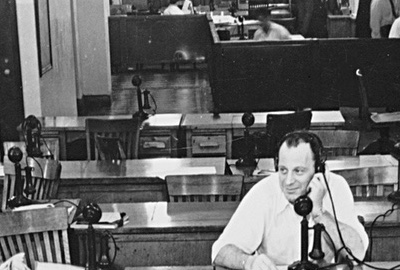 2022-05-08
2022-05-08

Birth Of The Corporation
- ArticlesandContent.com (CIRCA 2005)
- /
- Oct 8, 2021 (written 2005)
Although definitions and descriptions of corporations have changed dramatically through the last few hundred years, the first corporation actually began long ago – as early as the sixteenth century.
It was a benchmark in the history of money and business, transforming an economy from what was essentially a debt economy (when it came to merchant work) to a state-sponsored enterprise. This type of business was brilliant and revolutionary for the early business world, allowing businesses to take risks and expand in ways they had been unable to do before. The concept spread and grew, and by the seventeenth century, the corporation was well on its way to being an acclaimed and established center for regular commerce.
When corporate business came to the newly born United States of America, shortly after their break from England, the corporation was looked on with suspicion and mistrust. Although economically it seemed like a safe bet for profit, it was clear that those profits would be limited to a few powerful people, who would then hold immense sway over large chunks of the industry. The founding fathers were wary of such power, and so allowed corporations to flourish in the United States only under a very strict set of guidelines concerning what they could sell, how much, and to whom. The main goal of this was to prevent monopoly, where one business owned and controlled a large, or majority portion of any given market. While this theory was well meaning, the application proved difficult – in a free-market economy, survival of the fittest is inevitable, and the fittest did survive. Thus the corporation, despite its handicaps, quickly rose to dominance in the history of money and business within the US.
Evolution of the Corporation
As the evolving nature and role of the corporation became clearer, the United States Government had little choice but to relax their holds on these economic giants. Where before there had been laws regulating everything from minimum wage to the amount of debt a corporation could accrue, what land it could build on, what type of profit margin it could have, and more, there were now regulations loosening left to right. With the Civil War and turning points in the history of technology, new perspectives began to evolve contesting the rights of corporations similarly to the rights of individuals, leading to a loosening of the control over big business. Corporations were now allowed vastly more control concerning wages, working conditions, ownership, and corporate tenure, not to mention management.
The corporation continued to change, and so did its role, with the growing population of the United States. Emerging as a force not only in world government, but also in world economy, the US suddenly saw a rise in what was to eventually shape the identity of the entire nation: consumerism. As the country rose, grew, and prospered, it became one of the most powerful and successful nations in the world – and consequently, the nation with the highest economic demands, largely being met by – you guessed it – corporations. The very nature of these massive businesses allowed them to produce huge quantities of product with minimal cost, meaning that they could manufacture and distribute for the least cost and the maximum profit. This would also serve them well on the international level, where American corporations became quickly known as not only producers but also buyers – consumers in themselves, who would buy material or products, then turn around, and distribute them among the American people.
Corporations Today
In the modern world of economic power, multi-national businesses, and thriving international commerce, the corporation is more important than ever. Big businesses like Starbucks, McDonalds, Wal-Mart, and Hershey have made their footprints all over the globe, with profits to match. The Wal-Mart family has not only topped the list for the richest human beings on planet earth, but also the owner of one of the most valuable assets in history – a corporation that, through different eyes, might be viewed as a veritable kingdom of wealth.
The role of these corporations is an interesting one. Namely, they emphasize quantity over quality, which in the fast-paced world of evolving technology is no complaint for consumers. We want what we want when we want it – and cheap; this is something that nothing but an international corporation can provide. By extreme breakdown of products and services, the mass corporations have developed a way of business that runs like a well-oiled machine, every part in its place, every wheel and cog ready. The Internet has made an even bigger impact in the march of technology, adding the history of e-business and allowing businesses to market not only through physical stores but anywhere where there is computer access. Their footprints everywhere, their products in every home, and our economy riding on their broad backs – the corporations have indeed grown, and from their birth have moved to the place of ultimate power in our modern world.
More From Business
 2022-05-08
2022-05-08
 2022-05-08
2022-05-08
Real Life Railroad Tycoons
 2022-05-08
2022-05-08
3 of the Most Famous Entrepreneurs
 2022-05-08
2022-05-08
History of Philanthropy
 2022-05-08
2022-05-08
What Was The Dot Com Bust?
 2022-05-08
2022-05-08
History Of American Business
 2022-05-08
2022-05-08
How Wall Street Began
 2022-05-08
2022-05-08
1929 Stock Market Crash
 2022-05-08
2022-05-08
A Few of the Most Famous CEOs
 2022-05-08
2022-05-08
Famous Career Changes
 2022-05-08
2022-05-08